Fast adoption of new technologies, understanding of markets and focus on electric vehicles give homegrown brands edge over foreign rivals
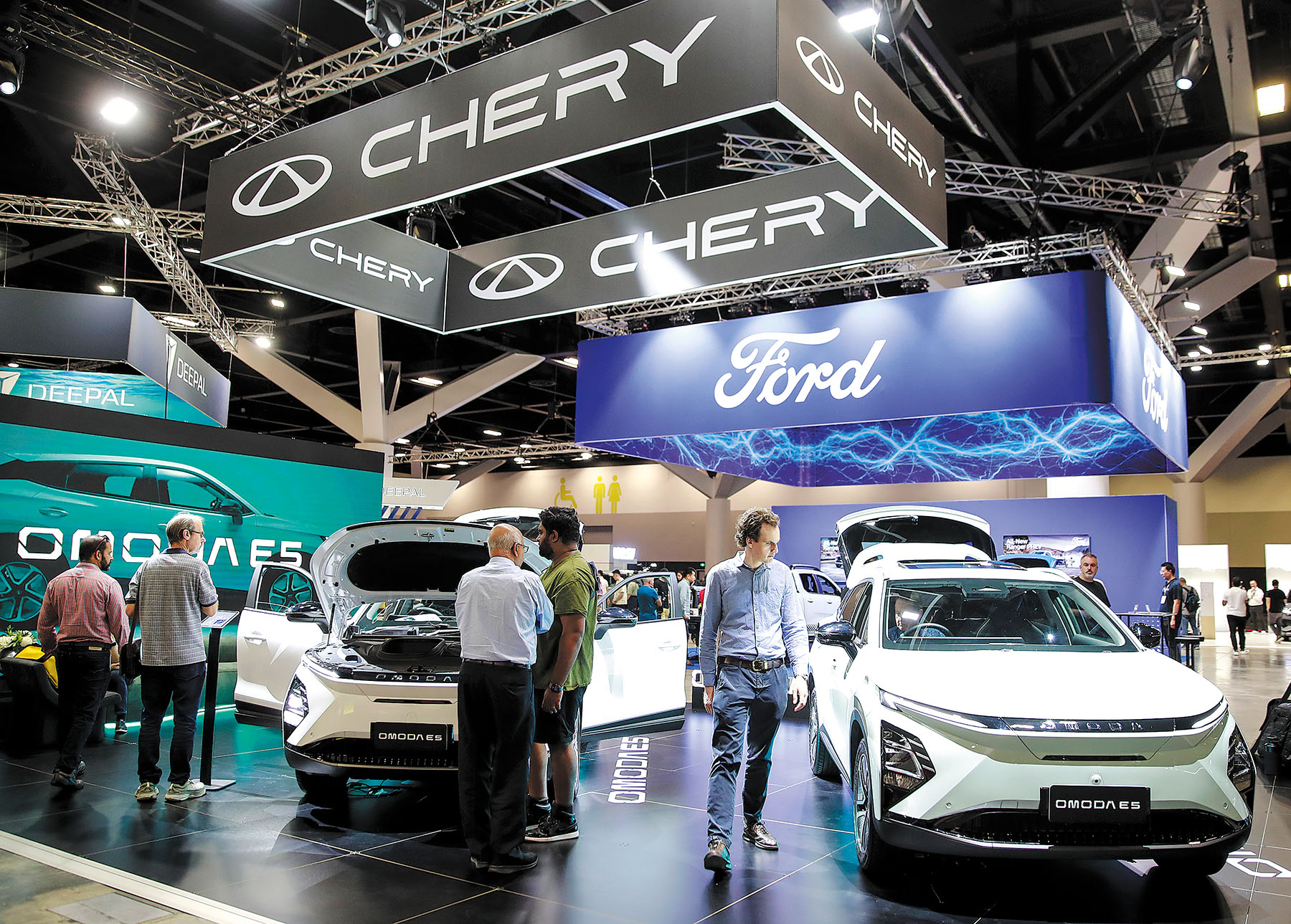
In March 2013, a 1.6-liter turbocharged midsized sedan called Qoros 3 debuted at the Geneva International Motor Show in Switzerland, grabbing the attention of a few reporters looking for something new in addition to models from big-name brands like Volkswagen and Peugeot.
The annual event, billed as the barometer of the global automobile industry, was primarily a stage for established giants from across the world, especially Europe, where modern vehicles were invented.
The Qoros 3, however, was not the first Chinese model to appear at the exhibition famed among car aficionados.
Chinese carmaker Brilliance Auto unveiled three models there in 2007, but the flagship of the three, the BS6, won only two stars of the five-starred European New Car Assessment Program, reinforcing the stereotype that the Chinese could not produce quality vehicles.
A year later came BYD, which was back then a nobody, with its F3. The plug-in hybrid that resembled Toyota's Corolla did not impress visitors at the Geneva International Motor Show either.
READ MORE: Positive forecast for 2025 in auto sector
Compared with Brilliance and BYD, Qoros, a joint venture between Chinese carmaker Chery and Israel Corporation, was treated more seriously.
The Qoros 3 had a modern design in the eyes of the Europeans and was solidly built — the sedan was the first Chinese model ever to win a five-star rating in the stringent Euro NCAP.
But European car reviewers were more skeptical than optimistic about its prospects.
"It'll charge around 20,000 euros for the 3, its mid-size saloon, figuring that product quality alone is going to be enough for buyers to look beyond the badge. Which seems...brave," said Matthew Jones in a BBC Top Gear report.
"Unlike the Chinese, us Euro types aren't used to being bombarded with dozens of new brands, and loyalty takes at least a few generations to garner, even if the products are dirt cheap," he added.
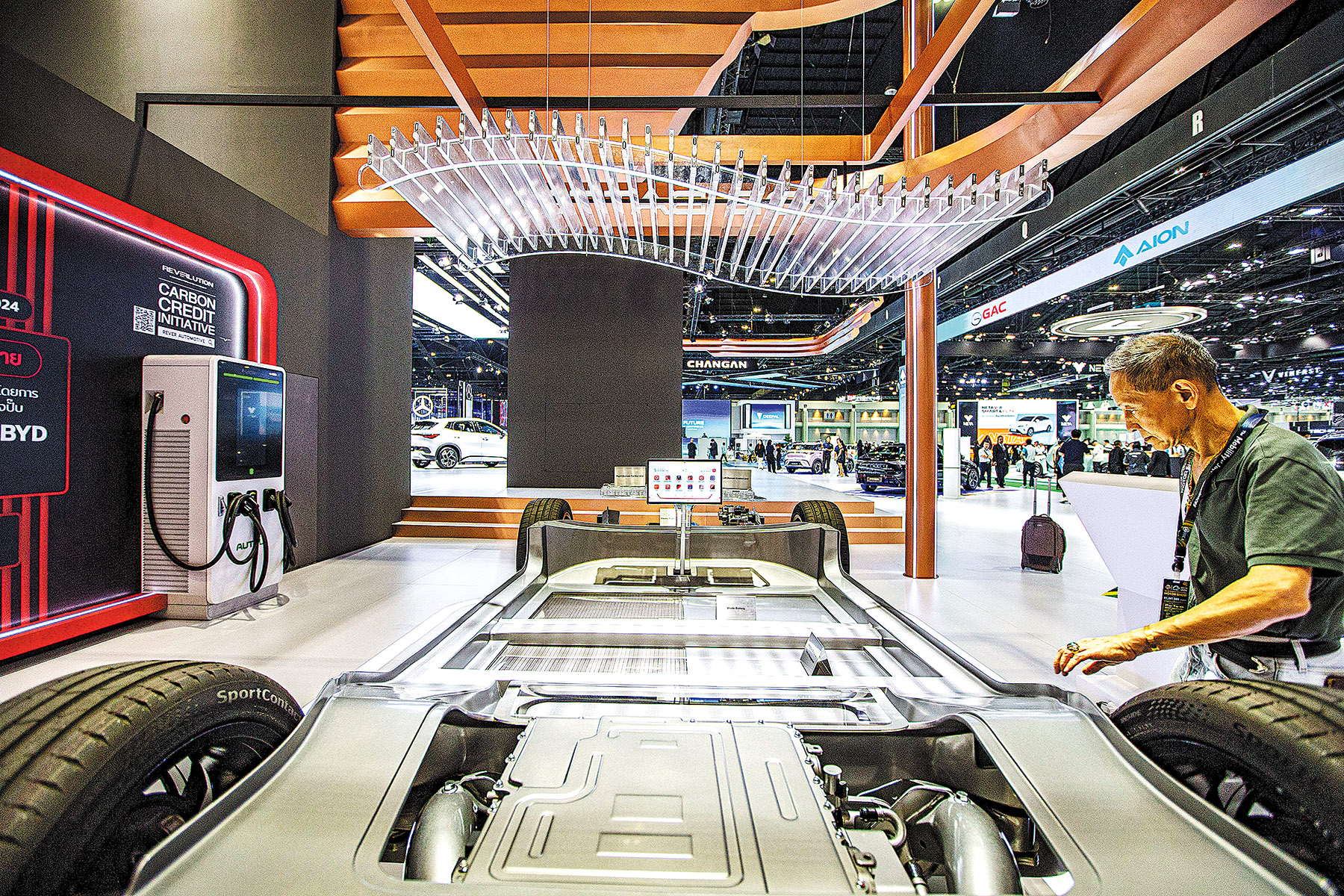
Jones' confidence, or arrogance in the eyes of local Chinese carmakers, was understandable.
Back then, when the gasoline car was the only choice, even Chinese car buyers were convinced that Japanese and South Korean brands did a better job in terms of both quality and performance than local marques, let alone European or American ones.
Thanks to this mentality, the Qoros failed to sell in China despite its good quality. After struggling for more than a decade, it vanished from the scene.
When talking about its failure, one of the most frequent comments from car analysts, including John Zeng, managing director of LMC Automotive Consulting (Shanghai), was that "it was naive for a Chinese brand to carry a price tag similar to that of a Volkswagen".
The analysts were correct. As Zhang Yongzhan, a 55-year-old construction contractor in Tianjin, said: "In those days, you chose a Chinese car simply because you could not afford a foreign one."
Zhang was one of the first private car owners in China. He bought a Volkswagen Santana in 1997, but now drives a BYD Han, an electric sedan.
"The Han is nice, spacious and quiet, and money-saving compared with gasoline cars," said Zhang, who still remembers the day he took a bag of cash to a Volkswagen dealership. "It was a whopping 135,500 yuan," he said.
The switch in Zhang's preference from a gasoline VW to an electric BYD reflects the rise of new energy vehicles over the past years, with around 60 percent of the world's total NEVs produced in China now.
Chen Shihua, deputy secretary-general of the China Association of Automobile Manufacturers, said total NEV sales are expected to reach 16 million units this year.
Last year, over 12.87 million NEVs were sold in the country, accounting for 40.9 percent of new vehicle deliveries in the year, according to the association.
The size of the market and the enthusiasm for such vehicles have fueled the rise of local giants.
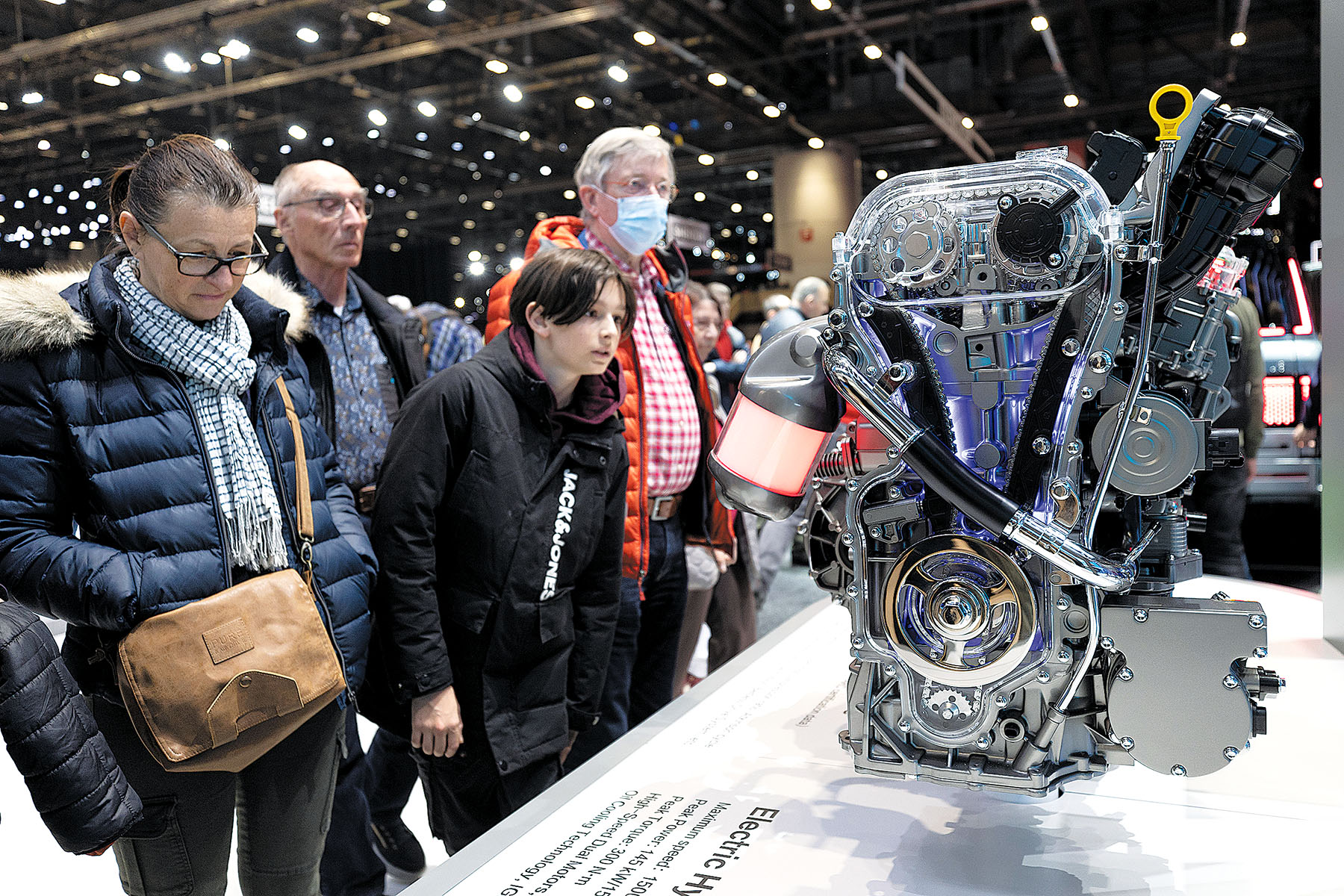
BYD sold 4.27 million NEVs in 2024, more than three of Volkswagen's car-making subsidiaries in China combined, although the German carmaker is the best-selling international one in the country.
Ralf Brandstaetter, CEO of Volkswagen Group China, said the company, with an array of NEV models developed with Chinese car buyers in mind to hit the market from around 2027, will remain the largest foreign carmaker in China.
But he admitted that Volkswagen is unlikely to regain its past glory in the country. In the age of smart electric vehicles, "it is clear that the No 1 carmaker in China will be a Chinese one", he said.
The rise of Chinese NEVs to stardom, which may seem "sudden" to a lot of people, dates back to the late 2010s, when Chinese carmakers accelerated their shift to NEVs.
Back then, major established international companies thought it was too early to make NEVs, arguing that demand was weak and, more importantly, their gasoline vehicles were still raking in money in many parts of the world.
During the three-year COVID-19 pandemic, Chinese vehicles moved from being merely electric to electric and smart, with such functions as voice command, facial recognition and autonomous parking becoming the norm.
Meanwhile, the top management of large foreign car manufacturing companies had little idea of what was going on in China as international travel remained restricted.
A major turning point was April 2023, when senior executives from almost all foreign carmakers and suppliers operating in China flew in to attend Auto Shanghai, the first major car show in the year after global travel restrictions were lifted.
Volkswagen sent a 170-member delegation that included almost all its board members to Shanghai, where it established its first Chinese joint venture back in 1984.
In a conversation ahead of their arrival, Brandstaetter said he would be super busy receiving his colleagues, but he was glad they could finally come and see for themselves the developments in the world's largest vehicle market.
For the general public in Europe, however, it would take another five months — till the International Motor Show Germany, or IAA, in Munich in September 2023 — for the reality of how far Chinese carmakers had gone to sink in.
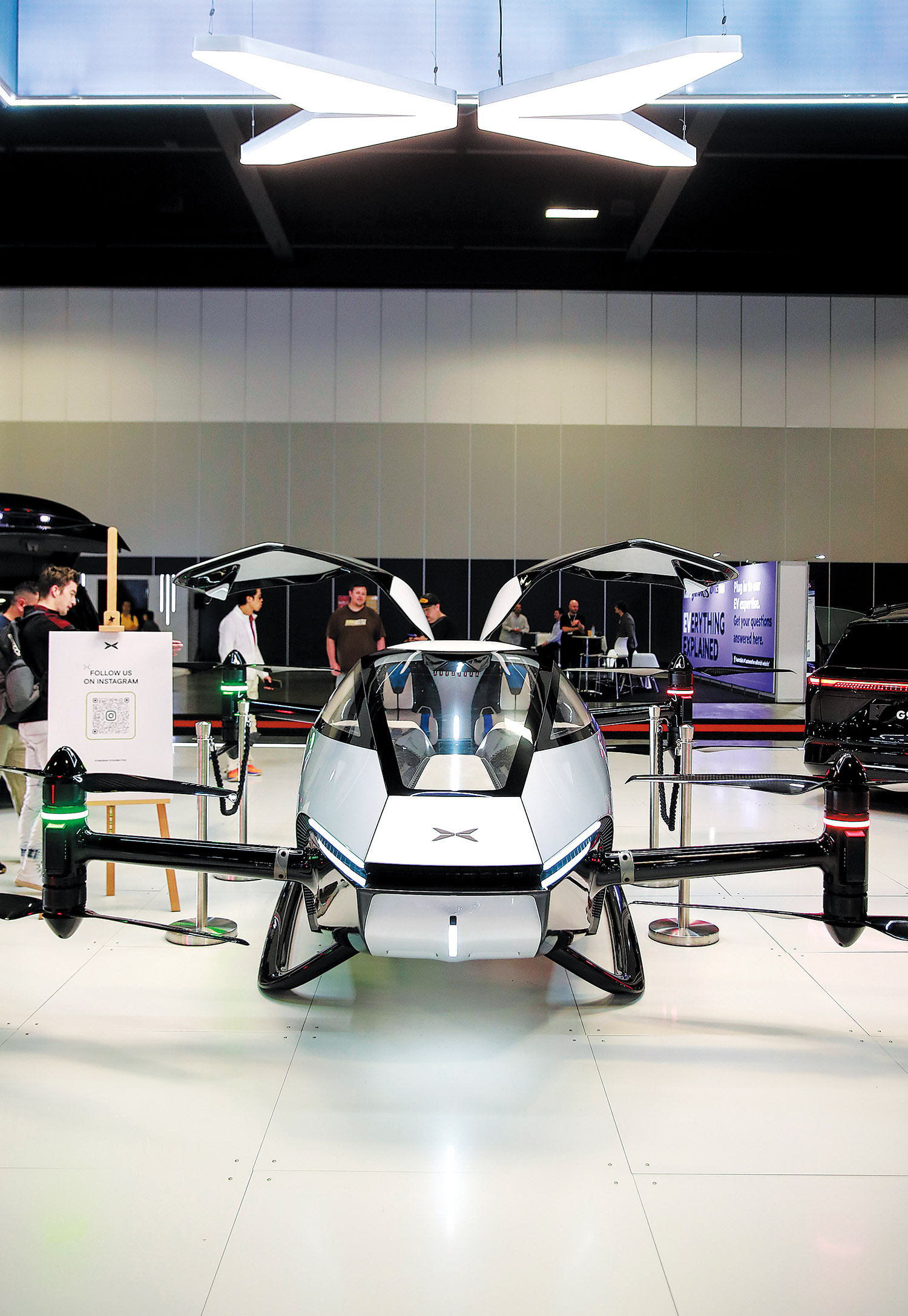
Present at the six-day event were some 70 Chinese firms, the largest ever contingent at any overseas auto event. Almost all the big names in the sector, from BYD and CATL to Leapmotor and Xpeng, were there.
BYD, already the world's largest NEV maker, released its fifth-generation hybrid technology for plug-in hybrid electric vehicles with a comprehensive driving range of 2,100 kilometers.
It also set up booths, with big eye-catching logos, on a downtown Munich road, showcasing its models.
Leapmotor unveiled its C10 SUV and said it planned to introduce five "globally-oriented" products across the world in the next two years.
"All of Leapmotor's subsequent products will be designed and developed with a global mindset and adhere to global standards," Leapmotor CEO Zhu Jiangming told the press conference.
The startup showcased its vehicle platform as well, looking to sell its technology to European car companies.
Its presence at the IAA, as well as Zhu's reception of overseas carmakers at the booth, accelerated Stellantis' decision to partner with the startup, according to reports.
A month later, Stellantis, which was formed with the merger of PSA and Fiat-Chrysler, decided to purchase a 21 percent stake in Leapmotor for 1.5 billion euros.
The two established a joint venture in May 2024 for the introduction of Leapmotor's models including T03 and C10 first into Europe and then to other parts of the world.
"Leveraging our existing global presence, we will soon be able to offer our customers price competitive and tech-centric electric vehicles that will exceed their expectations," said Carlos Tavares, who was then Stellantis CEO.
Chinese carmakers continued their push from Munich to Geneva. At the 2024 Geneva motor show in March, they were the largest exhibitors, as most western carmakers stayed away with the exception of Renault.
"A quick glance at the Geneva auto show might have persuaded jittery Europeans that the real or imagined existential threat to its iconic automotive industry by China's manufacturers had already happened," said Neil Winton in a Forbes report.
BYD, which was lighted at the event in 2008, was the most active participant, introducing the Seal plug-in hybrid and the big Tang 7-seater SUV, plus vehicles from its upmarket brands Denza and Yangwang.
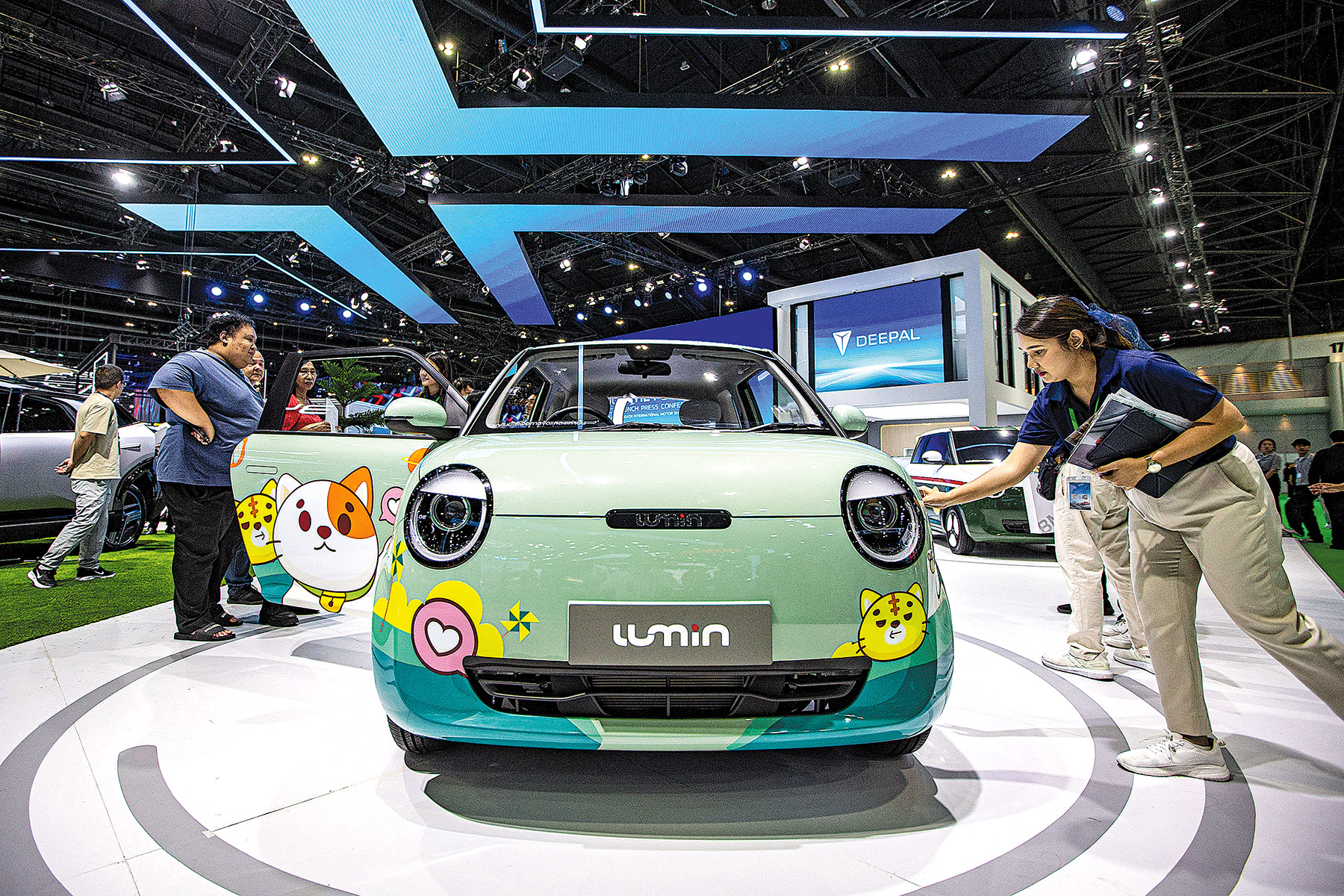
SAIC's MG unveiled a hybrid, which promises to be a big seller. MG is the most successful Chinese brand in Europe currently.
In 2023, Chinese brands sold over 350,000 sedans and SUVs in Europe, mainly electric ones. MG led the way with 239,000 mainly EVs, about double 2022's total.
Two months later, in May 2024, the Geneva motor show's organizer decided to discontinue the century-old event, which seems like a harbinger to the doomed fall of gasoline vehicles and the irreversible rise of NEVs.
"The lack of interest shown by manufacturers in the Geneva Salon in a difficult industry context, the competition from the Paris and Munich shows which are favored by their domestic industries, and the investment levels required to maintain such a show, sound the final blow for a future edition," said Alexandre de Senarclens, president of the Comite permanent du Salon International de l'Automobile Foundation, in a statement.
Paris is seeing the ambition of Chinese NEV makers. At the auto show in the French capital in October, the largest car event in Europe in 2024, nine Chinese brands unveiled their latest models.
The number of Chinese brands was the same as in 2022, when they made up almost half the brands present. In the latest edition, they accounted for only about a fifth of the brands thanks to a much stronger showing from Europe's auto industry — a sign of the latter's determination to defend its home turf.
GAC said its attendance at this year's show marked the launch of its European ambitions, while Leapmotor, in partnership with Stellantis, said it aimed to have 500 points of sale in Europe by the end of 2025.
Newer Chinese entrants like Seres, which is challenging the position of BMW and Mercedes in the premium SUV sector, and FAW's Hongqi showed new models as they sought overseas sales.
The Europeans are struggling to compete with Chinese rivals' lower costs and their ability to develop new EVs in just two years, at least twice as fast as traditional Western automakers.
"The Europeans have massive alarm bells ringing," said Phil Dunne, managing director at strategy consultancy Stax, in an interview with Reuters.
"They have recognized they need to do something pretty radical and they only have a couple of years to do it."
Having established their presence in Western Europe, Chinese car companies have rolled out bigger lineups at exhibitions in other parts of the world.
In October 2024, GWM, Dongfeng and Geely were attracting attention with their latest electric and hybrid models at the 26th Sofia Motor Show in Bulgaria.
GWM, a familiar brand in Bulgaria, unveiled its EV model, the ORA 07, for local consumers, along with the ORA 03 and the hybrid WEY 05.
Since 2011, GWM has steadily built trust in Bulgaria. Todor Stoykov, commercial director at Bulgarian Automotive Industry EAD, told Xinhua that the initial hesitation around Chinese cars had faded.
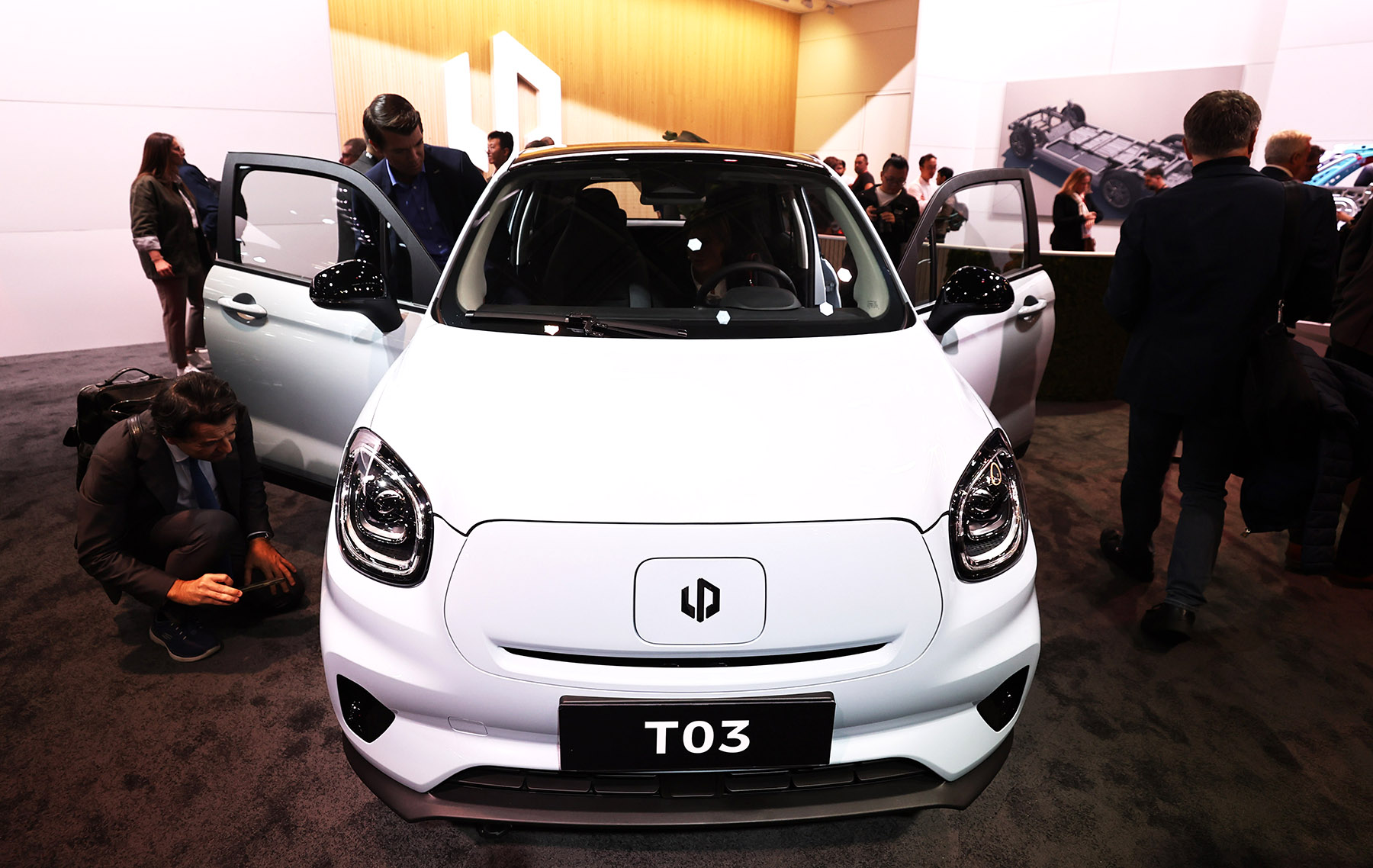
Stoykov noted that GWM's progress and China's broader auto advancements have boosted consumer confidence. "The GWM cars are increasingly accepted by Bulgarian consumers," he said, crediting years of effort and technological growth for this change.
He also emphasized GWM's advanced driver-assistance and safety systems. These include high-level processors and innovative battery technology. Though not always cheaper, Stoykov believes GWM offers excellent value.
Dongfeng, present in Bulgaria since 2022, and Geely, a recent entrant, displayed their models side by side.
Lyubomir Georgiev, 45, praised Geely's interior quality and design, reported Xinhua. While unsure about long-term durability, he found the price appealing. "Inside, the car looks nice, one feels comfortable," Georgiev added.
Chinese carmakers are even more frequent exhibitors in Southeast Asia and the Middle East, where NEVs have become increasingly popular among local car buyers.
Due to the COVID-19 pandemic, the Geneva auto show was moved to Doha, Qatar, in 2023. Of Chinese carmakers were Geely's premium brand Lynk & Co and Chery, each showcasing their respective lineups at the biggest booths.
ALSO READ: China's government procurement prioritizes acquisition of NEVs
As the Middle East is emerging as an important overseas market for Chinese carmakers, more are expected to attend the Qatar edition of the Geneva show, with the next one scheduled to be held in November 2025.
The presence of Chinese NEV makers is even bigger in Southeast Asia, especially Thailand.
At the 41st Thailand International Motor Expo 2024, which concluded on Dec 10, total vehicle bookings of 62,495 units were recorded during its 13-day run, of which 41.3 percent were EVs, said the organizers.
While Japan's Toyota emerged as the top-selling brand with 8,297 units, Chinese brands led in the NEV segment, with BYD ranking No 1 at 7,042 units, followed by GAC AION at 3,668 units and SAIC MG at 3,311 units.
"The recognition from the consumers of our EVs is beyond the affection for cars, but a growing public trend of pursuing a sustainable life," said Liu Xueliang, general manager of BYD's auto sales division for Asia-Pacific.
"China has gained great experience in green development. We'd love to share our experiences with the world, making joint contributions to the global sustainable goal," Liu said.


